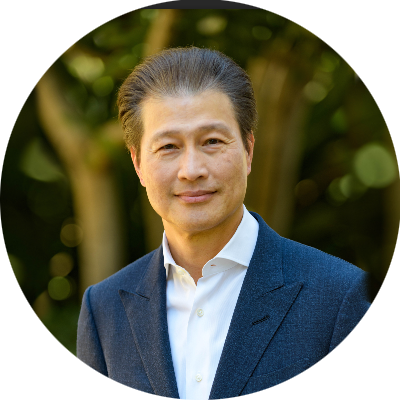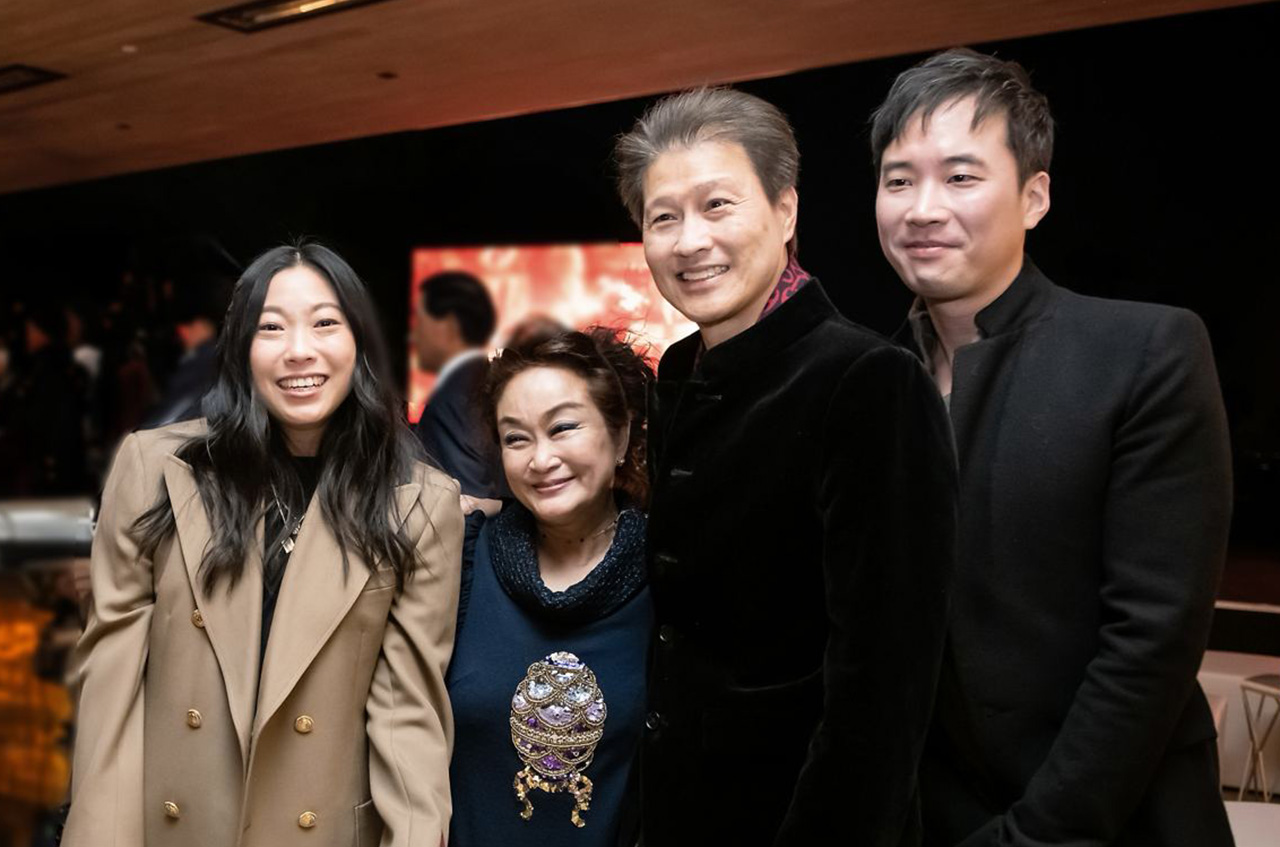

Squid Game, BTS, and best picture Oscar winner Parasite are all part of the growing global popularity of South Korean pop culture, which is helping audiences see Asians in a new light. Our Chairman and CEO Dominic Ng spoke with his fellow Academy Museum of Motion Pictures board member Miky Lee about this “Hallyu,” or Korean Wave. Ms. Lee is the Executive producer of Parasite and the vice chair of South Korea conglomerate CJ Group, overseeing CJ Group’s entertainment and media business. Find out what inspires Ms. Lee to build bridges with entertainment and what’s in store for her next creative chapter.
Dominic Ng: You’re currently serving as vice chair at the Academy Museum. Why was this an important role for you to take on?
Miky Lee: The Academy Museum is a place where motion pictures become more than entertainment and solidify their significance as living history in the lives of its audience—it is a space where cinephiles can not only connect with each other but deepen their relationship with the projects that have made an impact on their lives. As vice chair, my long-standing mission is to serve the entertainment community as the bridge connecting multicultural talent and creators with the global stage. I hope to elevate the museum to a dynamic space that embodies diversity and the rich history of cinema.
Dominic Ng: Film certainly is a powerful medium for building relationships. What was the first moment you realized the power of cinema?
Miky Lee: When I was 11 years old, there was a big theater just a 10-minute walk away from my house. The first film that completely captivated and transformed my world view was The Sound of Music. I ended up watching the movie in theaters 12 times. When Julie Andrews’ character made the Von Trapp children’s play clothes out of their curtains, it reminded me that I used to imagine how my grandmother’s curtains would make such beautiful clothes. It was the moment I realized that there is a larger community beyond my own and that I could share the same idea as someone on the opposite side of the world. I also found it fascinating that I could travel through another culture through storytelling.

(L-R, Awkwafina; Miky Lee; Dominic Ng; Jung Jae-il)
Dominic Ng: Parasite made Oscar’s history in 2020 by becoming the first non-English-language film to win Best Picture. What do you think that means for Korean cinema and pop culture in general?
Miky Lee: Parasite’s historic win was a real hooray for the whole Asian American community. It inspired not only Koreans but many international creators and filmmakers. The success of Korean content has given everyone hope and proven that ANYONE can be part of mainstream culture. The momentum from Director Bong Joon-ho’s Parasite win, followed by the success of Minari and Everything Everywhere All at Once, has lowered barriers, bringing more Asian content and creators into the spotlight. Also, streaming platforms have opened their doors to more diverse stories from around the world. From hits like Squid Games, The Glory, Crash Landing on You, to Beef, top charts on these platforms are becoming more international and diverse than ever.
Dominic Ng: K-Pop has obviously always been popular in Korea and the rest of Asia, but in the past few years it’s taken the West by storm. What other new frontiers are there for Asian entertainers? How is CJ Group shaping that?
Miky Lee: Our collective success did not happen overnight, nor was it the result of sheer luck. We may be a national minority, but we are connected with the global majority. Our strength lies in authentic storytelling. Thanks to the legacy of Asian creatives and support from our communities, we continue to share our stories. CJ is working on fun and exciting projects across film, TV, and music with creators who are bridging the East and the West. For example, director Park Chan-wook, who won the Best Director Award at the 75th Cannes Film Festival for Decision to Leave, is working on a limited series The Sympathizer for HBO, a story about a half-French, half-Vietnamese communist spy. And, Lynda Obst, who is known for Interstellar, is creating a Hollywood film about K-Pop called K-Pop: Lost in America with Korean director JK Youn. These are just a few of the creatives we are working with who are creating projects with different cultures and different ideas with Asian elements.
Dominic Ng: You’ve made it a point to support the next generation of young creatives. How has this philosophy impacted how you approach your work?
Miky Lee: When I first started working in the entertainment industry, mentors were there to guide me in the right direction. Steven Spielberg told me, “It’s a people business! It’s all about understanding and respecting everyone working in it!” The philosophy of nurturing talent has translated into relationships with some of the most prominent directors. Directors like Bong Joon-ho, Kim Jee-woon, Ryoo Seung-wan, and JK Youn didn’t rise to fame overnight. We understood Korean directors had great potential in creating their stories in their unique way. We continued to work together with them over the years, and now, with both commercially successful and artistic works like director Bong’s Parasite and director Kim’s The Age of Shadows, as well as local blockbuster hits like director Ryoo’s Veteran and director Youn’s Ode to my Father, they have become the most influential Korean filmmakers. We are proud to have established long relationships with them, and we’ll always continue to support the next generation of creatives to stretch the boundaries of the industry in new ways.
Subscribe to the Reach Further Newsletter
Get inspiring stories in your inbox every month.

